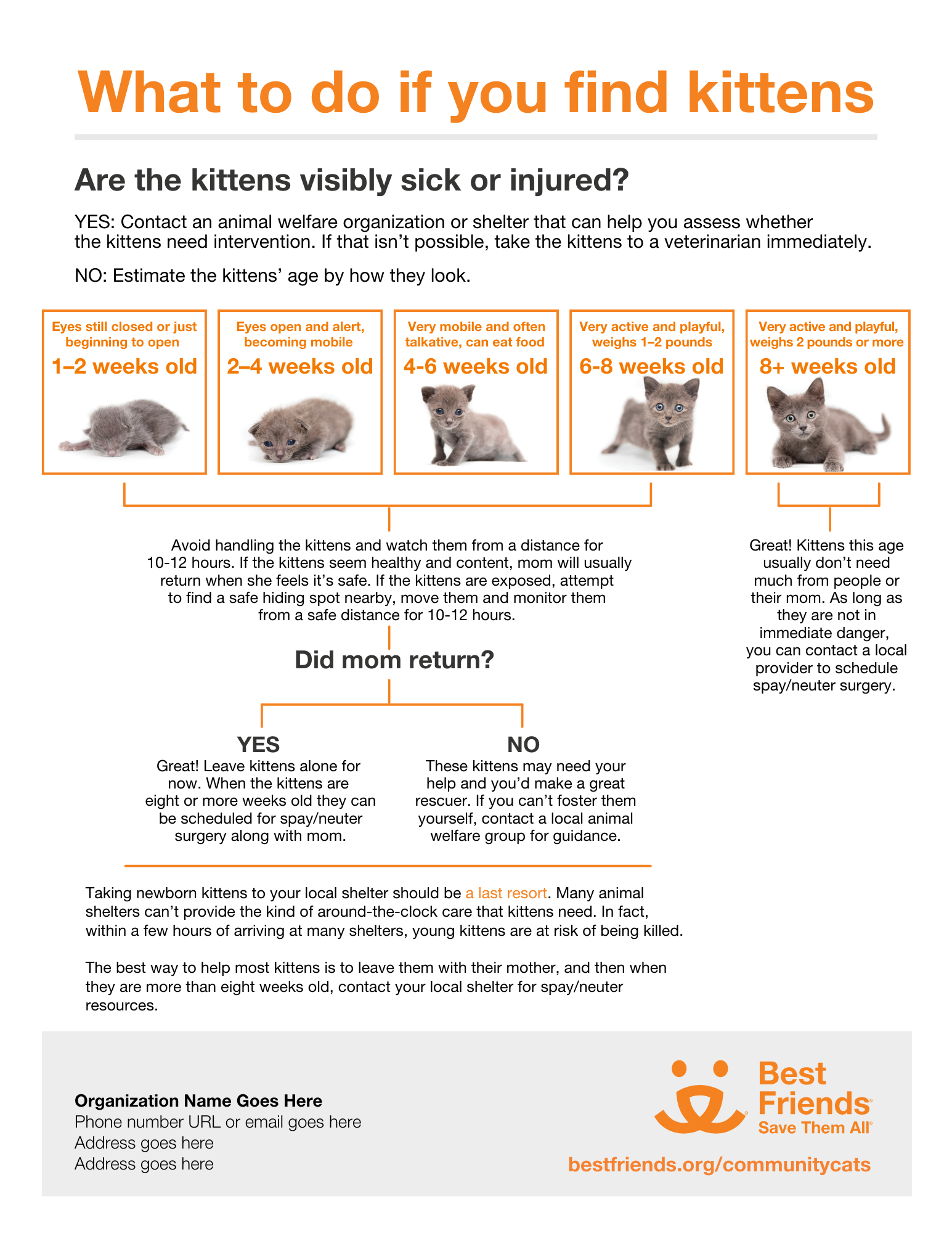
A Comprehensive Guide to Caring for Baby Kittens
Introduction
Bringing a baby kitten into your home is an incredibly rewarding experience, but it also comes with a significant responsibility. These tiny creatures require specialized care and attention to ensure their health and well-being. This comprehensive guide will provide you with all the essential information you need to care for your baby kitten, from feeding and grooming to socialization and medical care.
Feeding
1. Milk Replacement:
- For kittens under 4 weeks old, milk replacement is essential. Choose a kitten-specific formula and follow the instructions carefully.
- Warm the milk to body temperature (98-100°F) before feeding.
- Use a bottle or syringe specifically designed for kittens.
- Feed every 2-3 hours, or as directed by your veterinarian.
2. Weaning:
- Start introducing solid food around 4 weeks of age.
- Offer kitten-specific wet food or gruel made from kitten formula and canned pumpkin.
- Gradually reduce the amount of milk replacement as the kitten eats more solid food.
- By 8 weeks of age, the kitten should be fully weaned.
Grooming
1. Bathing:
- Kittens do not need frequent baths. Only bathe them if they are dirty or have fleas.
- Use a mild, kitten-specific shampoo and warm water.
- Rinse thoroughly and towel dry.
2. Brushing:
- Brush your kitten’s fur regularly to remove loose hair and prevent mats.
- Use a soft-bristled brush and be gentle.
3. Nail Trimming:
- Trim your kitten’s nails regularly to prevent scratching.
- Use kitten-specific nail clippers and be careful not to cut too short.
Socialization
1. Handling:
- Handle your kitten gently and frequently from a young age.
- Pet them, hold them, and talk to them in a soothing voice.
2. Playtime:
- Engage your kitten in interactive playtime sessions to stimulate their physical and mental development.
- Use toys such as wands, balls, and scratching posts.
3. Exposure to People and Animals:
- Gradually introduce your kitten to other people and animals in a controlled environment.
- Supervise interactions and ensure that they are positive and non-threatening.
Medical Care
1. Vaccinations:
- Kittens require a series of vaccinations to protect them from common diseases.
- Consult with your veterinarian to determine the appropriate vaccination schedule.
2. Deworming:
- Kittens can be infected with intestinal parasites.
- Regular deworming is essential to prevent health problems.
3. Flea and Tick Control:
- Kittens can be susceptible to fleas and ticks.
- Use kitten-specific flea and tick prevention products as directed by your veterinarian.
4. Spaying or Neutering:
- Spaying or neutering your kitten at an appropriate age is essential for preventing unwanted litters and certain health problems.
5. Veterinary Checkups:
- Regular veterinary checkups are crucial for monitoring your kitten’s health and detecting any potential issues early on.
Common Health Issues
1. Diarrhea:
- Diarrhea can be caused by various factors, including diet changes, parasites, or infections.
- Consult with your veterinarian for proper diagnosis and treatment.
2. Respiratory Infections:
- Kittens are prone to respiratory infections, such as the common cold or pneumonia.
- Symptoms include sneezing, coughing, and nasal discharge.
- Seek veterinary attention promptly.
3. Eye Infections:
- Eye infections can be caused by bacteria or viruses.
- Symptoms include squinting, redness, and discharge.
- Consult with your veterinarian for treatment.
4. Skin Conditions:
- Kittens can develop skin conditions such as ringworm or scabies.
- Symptoms include itching, hair loss, and crusty lesions.
- Seek veterinary attention for diagnosis and treatment.
Conclusion
Caring for a baby kitten is a rewarding but demanding task. By following the guidelines outlined in this comprehensive guide, you can provide your kitten with the optimal care and support it needs to thrive. Remember to consult with your veterinarian regularly for professional advice and guidance. With patience, love, and proper care, you can ensure that your baby kitten grows into a healthy and happy companion for years to come.
